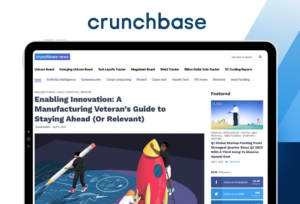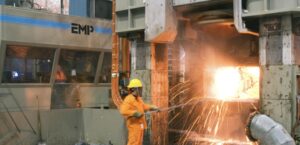Why an ERP System Makes a Great Predictive Analytics Tool

Enterprise resource planning (ERP) and predictive analytics go hand-in-hand, helping to solve many age-old challenges in manufacturing environments, including:
- How manufacturers can deliver goods on time and accurately
- How manufacturers can operate efficiently, without having too much or too little inventory on hand
- How to properly schedule staff to avoid paying overtime when demand is high, and how to avoid understaffing when demand is low
ERP predictive analytics gives manufacturers the insight to solve those problems based on real-time business intelligence and data.
Because ERP systems collect and track information, using those details to automate advanced analytics is the logical next step. ERPs can predict trends accurately, based on your company’s history, data coming from buyers, global market conditions, and internal performance indicators.
With ERP predictive analytics, your company no longer has to worry about what to do and when to do it. The ERP informs you with accurate, quality predictive analytics, and then all you have to do is meet those targets.
Here’s how it works.
What is Predictive Analytics?
First, let’s look at what predictive analytics entails, including the techniques used.
The goal is to forecast what it takes to attain a balanced supply and demand. Predictive analytics might inform your company to dial back on a product run, for example, if marketing goals weren’t met, or tell you which customers to prioritize in the event of an unavoidable inventory shortage.
It might sound like magic, but it’s all algorithms, machine learning, and automation. This means your organization is going beyond looking at past decisions and outcomes. It is using smart data and machines that run various scenarios to achieve the best results.
Make Smarter Decisions
With an ERP in place, your company can use this smart data to make smarter decisions. ERP combines with predictive analytics by ensuring that your algorithms and automation have the most up-to-date and centralized information available. It also gives predictive analytics tools access to quality information from pre-existing analytics and data to build forward-looking models.
With your ERP, there is no more stressing about each decision your company makes, and no more worrying about how each choice will impact your customer relationships, profitability, and morale because you’re applying the insights your ERP provides.
A More Connected Supply Chain
A good ERP predictive analytics tool functions by connecting the entire supply chain and running tests to see what happens if one part of the chain does something differently. Based on your set goals, the tool then tells you what you need to do to adjust to that change to still reach your target. A reliable supply chain is vital to the success of any manufacturer. ERP predictive analytics is a valuable tool that will keep your supply chain in good health.
As your trusted ERP solution provider, focusing on ERP tools and platforms for manufacturers, we’re here to help you design and implement ERP predictive analytics that will work best for your manufacturing business. Call us at 412-562-9660 or email info@decision.com.
Similar Blogs

Decision Resources Featured on Crunchbase

Chips, drugs, and steel — how to prepare for Trump tariffs





